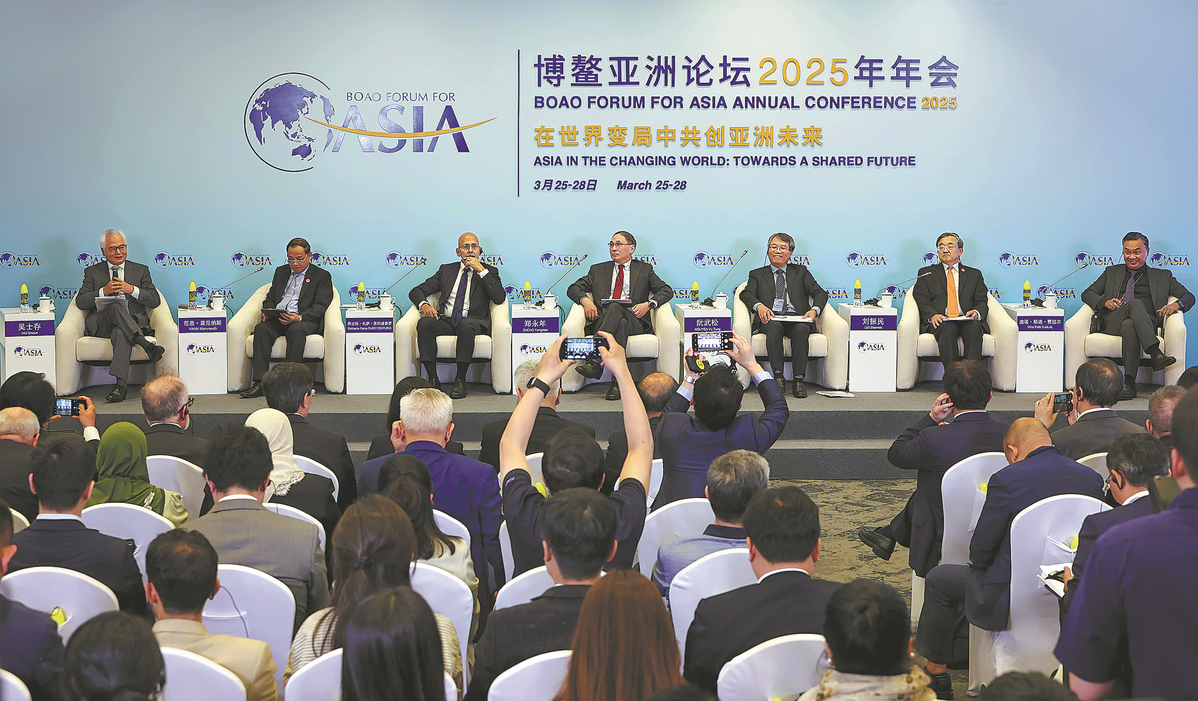Countries called on to promote cooperation in South China Sea

Officials and experts attending the Boao Forum for Asia Annual Conference have underlined the need for the countries involved in the South China Sea issue to resolve their disputes through dialogue to promote peace, friendship and cooperation in the South China Sea.
They made the remarks on Thursday at a subforum, themed "Illuminating the Blue: Building the South China Sea into a Sea of Peace, Friendship and Cooperation", held on the sidelines of the annual conference.
They warned external countries not to stir up trouble, create disruptions or provoke confrontations in the region that would affect the peace and stability of the South China Sea.
Vice-Foreign Minister Chen Xiaodong said that China remains committed to being a stabilizing force in promoting the peaceful development of the South China Sea, while firmly safeguarding its national sovereignty, security and development interests.
While calling for the resolution of maritime issues through bilateral negotiations, he emphasized the need to prevent external forces from interfering in and destabilizing the peace and stability of the South China Sea.
"For the South China Sea to be stable and for its issue to be resolved, external interference must be eliminated," Chen said.
China is willing to work with all parties to comprehensively and effectively implement the Declaration on the Conduct of Parties in the South China Sea, and strive to achieve a Code of Conduct in the South China Sea by 2026, he added.
China has established maritime dialogue mechanisms with all countries involved in the South China Sea issue. Last year, it signed an intergovernmental document on joint maritime development with Indonesia. Consultations on the Code of Conduct are accelerating, and the third reading of the text has been completed.
Sidharto Reza Suryodipuro, director-general and senior official for Association of Southeast Asian Nations cooperation at Indonesia's Ministry of Foreign Affairs, said that Indonesia and ASEAN emphasize the peaceful resolution of disputes and the achievement of maritime stability through diplomacy and international law.
This approach includes the full implementation of the Declaration on the Conduct of Parties and strengthening negotiations with China to reach a substantive Code of Conduct by 2026, he said.
Zheng Yongnian, dean of Chinese University of Hong Kong's School of Public Policy in Shenzhen, Guangdong province, said the South China Sea issue is intertwined with the broader geopolitical environment.
It is crucial to not underestimate the disruptions to the world order by the new presidential administration of the United States, he said, adding that countries involved should address the issue within the larger framework of maintaining stability and development in Asia.
Nguyen Vu Tung, a senior adviser and former president of the Diplomatic Academy of Vietnam, said the foreign policies introduced by the US in recent weeks seemingly tend to alter the existing international order, which is likely to have an impact on the future development of the South China Sea issue.
The fact that Washington takes Beijing as a competitor makes things more complex, he added.
